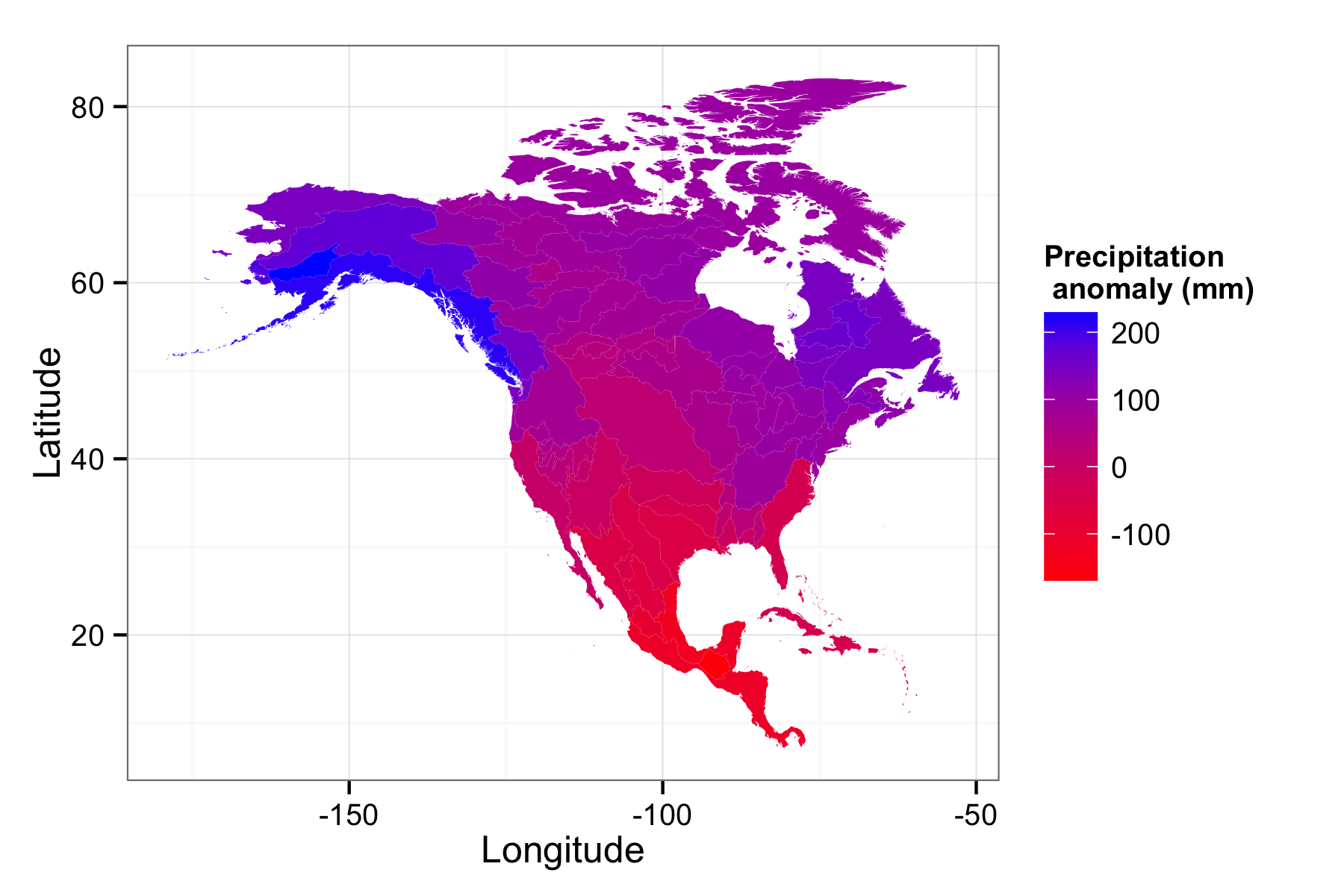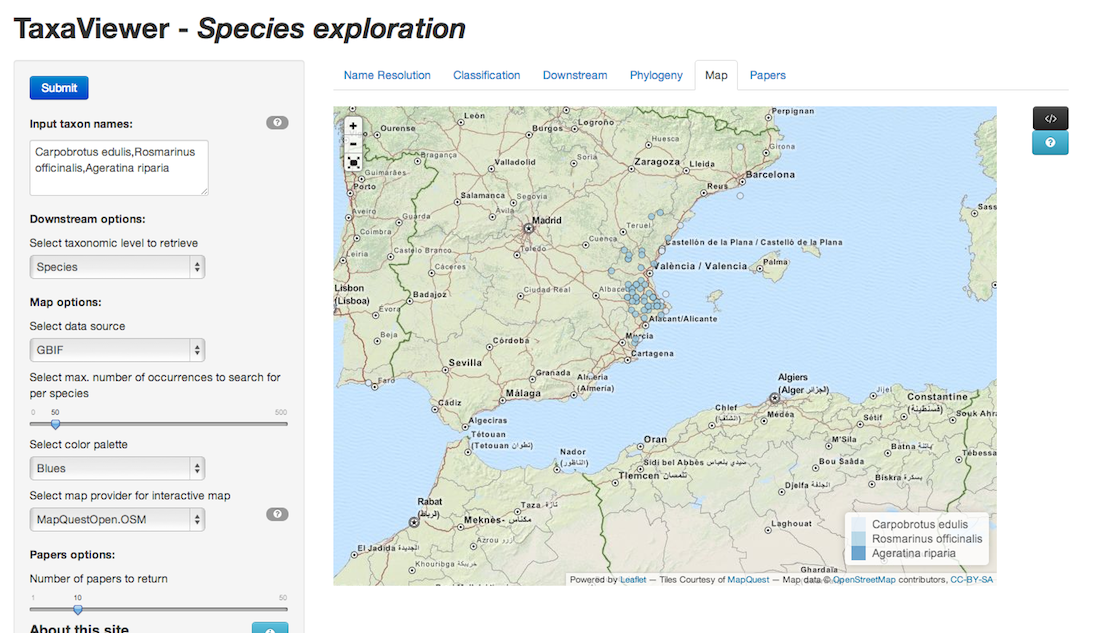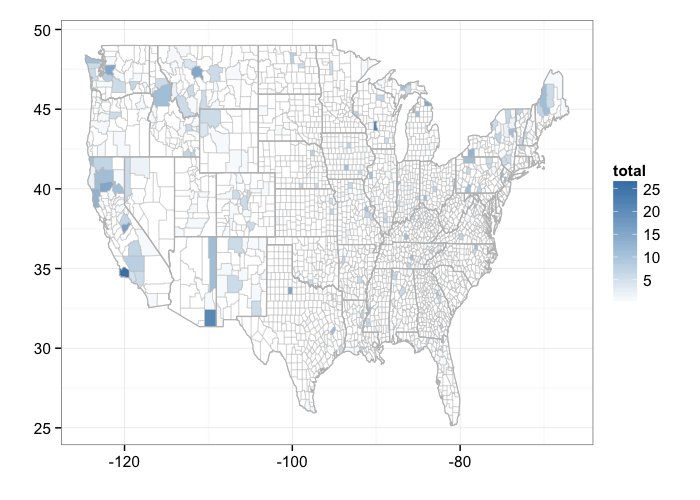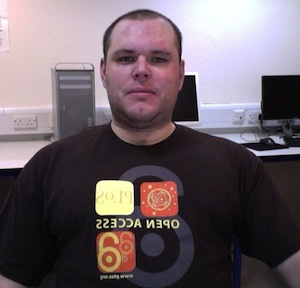[We are pleased to announce a new feature in Europe PMC that allows you to track data citations in the scientific literature.
Messaggi di Rogue Scholar

A recent video on the PBS Ideas Channel posited that the discovery of climate change is humanities greatest scientific achievement. It took synthesizing generations of data from thousands of scientists, hundreds of thousands (if not more) of hours of computer time to run models at institutions all over the world. But how can the individual researcher get their hands of some this data?
Previously on this blog and on my own personal blog, I have discussed how easy it is to create interactive maps on Github using a combination of R, git and Github. This is done using a file format called geojson , a file format based on JSON (JavaScript Object Notation) in which you can specify geographic data along with any other metadata.
We have a number of packages for getting species occurrence data: rgbif and rbison. The power of R is that you can pull down this occurrence data, manipulate the data, do some analyses, and visualize the data - all in one open source framework. However, when dealing with occurrence data on maps, it is often useful to be able to interact with the visualization.

R has a reputation of not playing nice on the web. At rOpenSci, we write R pacakages to bring data from around the web into R on your local machine - so we mostly don’t do any dev for the web. However, the United States Geological Survey (USGS) recenty held an app competition - it was a good opportunity to play with R on the web. We won best overall app as described in an earlier post on this blog.
[Europe PMC has released a new GRant Information SysTem (GRIST) that is loaded with grant data from the 2]{style=“font-family: "helvetica neue" , "arial" , "helvetica" , sans-serif;”}[0 Europe PMC funders.

The USGS recently released a way to search for and get species occurrence records for the USA. The service is called BISON (Biodiversity Information Serving Our Nation). The service has a web interface for human interaction in a browser, and two APIs (application programming interface) to allow machines to interact with their database.
We’ve been busy We have been busy hacking away at code and our website. Here is an update on what we’ve been up to. Packages rplos/alm PLoS provides two different API services: the Search API and ALM API. As their names suggest, the search API lets you search and get text from their papers and associated metadata. The ALM API allows you to get article level metrics data on PLoS papers.

A guest blog post by Steve Moss Why Python? A little background! I started using Python in the summer of 2010. I had applied for the Master of Research postgraduate degree in Computational Biology at the University of York. They teach the programming portion of their course using Python. I thought it might be useful to learn it, before starting, to give me a bit of a head start.
Many US federal agencies are now running app competitions to highlight their web services (see here), and hopefully get people to build cool stuff using government data (see Data.gov for more). See here for a nice list of the US government’s web services. One of these agencies was the United States Geological Survey (USGS). They opened up an app competition and [we won best overall app!